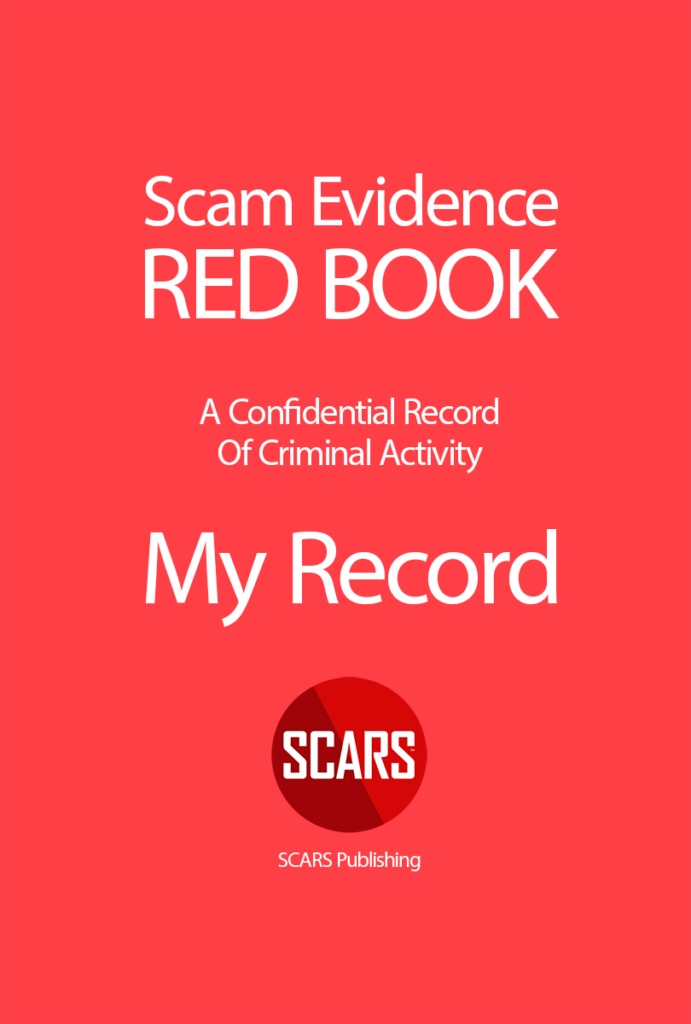Unbelievable Story Of A U.S. Military Soldier Sanda G. Frimpong Involved In A Romance Scam Gang
A U.S. Soldier from Ghana becomes a real romance scam gang member
Author:
• SCARS Editorial Team – Society of Citizens Against Relationship Scams Inc.
About This Article
Former U.S. Army soldier Sanda G. Frimpong, formerly stationed at Fort Bragg, has been sentenced to 40 months in federal prison for his involvement in a money laundering romance scam targeting vulnerable individuals, including seniors and military veterans, from 2019 to 2022. Frimpong, 33, pleaded guilty to three counts of money laundering in exchange for the dismissal of multiple charges, including wire fraud and identity theft.
His fraudulent activities, which included impersonating romantic partners and military personnel, resulted in the laundering of hundreds of thousands of dollars through various bank accounts and contacts in Ghana.
U.S. Attorney Michael Easley emphasized the seriousness of romance scams, particularly when perpetrated by a servicemember, while Special Agent in Charge Christopher Dillard stressed the importance of integrity within the armed forces. The investigation was led by the Defense Criminal Investigative Service, with prosecution handled by Assistant U.S. Attorney David G. Beraka.
Just Unbelievable: Former Army Soldier/Servicemember Sanda G. Frimpong Sentenced to Prison in Money Laundering Romance Scam
A former Fort Bragg soldier, Sanda G. Frimpong, was sent to federal prison Thursday for a fraud scheme and online romance scams that stole hundreds of thousands from vulnerable, often elderly people, from 2019 to 2022.
Sanda G. Frimpong, 33, a former Ghanaian, was a U.S. Army specialist when he was arrested on the allegations in March 2023. He pleaded guilty in September to three counts of money laundering. In exchange for the plea, multiple counts of wire fraud, mail fraud, conspiracy, identity theft and device fraud were dismissed, record shows.
Sentenced to Prison
Sanda G. Frimpong, 33 (male), was sentenced to 40 months in federal prison and ordered to pay hundreds of thousands of dollars in restitution to victims for laundering the illicit proceeds of an elaborate series of romance scams. Frimpong pled guilty to three counts of money laundering on September 14, 2023.
“Romance scammers exploit our most vulnerable citizens, even our seniors and military veterans, sometimes leaving them financially and emotionally devastated,” said U.S. Attorney Michael Easley. “The fact that an Army servicemember was involved in romance scams while serving as a soldier is appalling. We are partnering with the Department of Defense to drum out fraudsters and money launderers like Frimpong from our military ranks and put them in prison where they belong.”
“Integrity is a core tenet of the armed forces and when servicemembers choose to compromise their integrity for greed, it tarnishes the reputation of all others serving in uniform,” stated Special Agent in Charge Christopher Dillard, Department of Defense Office of Inspector General, Defense Criminal Investigative Service (DCIS), Mid-Atlantic Field Office. “DCIS and its law enforcement partners will continue to work with the U.S. Attorney’s Office to hold those accountable who cheat government programs and use online scams to prey on the most vulnerable.”
Frimpong and other conspirators, engaged in elaborate scams, impersonating romantic love interests, diplomats, customs personnel, military personnel, and other fictitious personas for the purpose of ensnaring their victims by earning their confidence, including promises of romance, sharing of an inheritance or other riches, or other scenarios intended to fraudulently induce the victims to provide money or property to the conspirators. Frimpong then laundered hundreds of thousands of dollars in proceeds of these frauds through his various bank accounts across state lines and through his contacts in Ghana. Frimpong was also an active-duty Army servicemember stationed at Fort Bragg during the commission of the offenses up until shortly after his arrest in 2023.
Michael Easley, U.S. Attorney for the Eastern District of North Carolina made the announcement after U.S. District Judge James C. Dever III announced the sentence. Defense Criminal Investigative Service led the investigation, and Assistant U.S. Attorney David G. Beraka prosecuted the case.
Arrested and Indicted
Sanda G. Frimpong, 33, was arrested on March 1st, 2023, upon the unsealing of a 19-count indictment that included charges of Money Laundering, Fraud, Conspiracy, Aggravated Identity Theft, and Access Device Fraud in connection with multiple interstate and international fraud and money-laundering scams. Frimpong, an active duty servicemember then stationed at Fort Bragg in Fayetteville, faced between up to ten and up to twenty years in prison per count, and potential fines – but instead go just 40 months.
“Online romance scams are increasingly targeting lonely, vulnerable, and often elderly victims,” stated US Attorney Michael Easley. “Our office is committed to seeking justice for fraud victims just as we are to prosecuting those who took advantage of programs intended to help unemployed and underemployed folks who struggled through the COVID-19 pandemic.”
According to the indictment, Frimpong and other conspirators, engaged in elaborate scams, impersonating romantic love interests, diplomats, customs personnel, military personnel, and other fictitious personas for the purpose of ensnaring their victims by earning their confidence, including promises of romance, sharing of an inheritance or other riches, or other scenarios intended to fraudulently induce the victims to provide money or property to the conspirators. Frimpong allegedly laundered hundreds of thousands of dollars in proceeds of these frauds through his various bank accounts across state lines and through contacts in Ghana.
Additionally, in a separate scam, according to the indictment, Frimpong and other conspirators fraudulently applied for unemployment assistance in various states, using stolen identities. This fraud included allegedly obtaining over $100,000 in funds intended for those struggling through the COVID-19 pandemic and made available via the Coronavirus Aid, Relief, and Economic Security Act (the “CARES Act”).
Frimpong was indicted on three counts of money laundering; seven counts of wire fraud; three counts of mail fraud; one count of conspiracy to commit mail and wire fraud; three counts of aggravated identity theft; and two counts of access device fraud. Arraignment before United States District Judge James C. Dever III is scheduled to occur later this year.
Please Rate This Article
Please Leave Us Your Comment
Also, tell us of any topics we might have missed.
Thank you for your comment. You may receive an email to follow up. We never share your data with marketers.
-/ 30 /-
What do you think about this?
Please share your thoughts in a comment above!
More Military Scam Related Information:
- U.S. Army Scammers / Fake Soldier Romance Scams (romancescamsnow.com)
- Recognizing Real United States Military & Soldiers (romancescamsnow.com)
- How To Spot Fake United States Military ID Cards (romancescamsnow.com)
- Click Here For A Guide To U.S. Military Ranks (romancescamsnow.com)
- Click here for our Impersonation Galleries (romancescamsnow.com)
- For more Scammer Photos visit www.ScammerPhotos.com
-/ 30 /-
What do you think about this?
Please share your thoughts in a comment above!
SCARS LINKS: AgainstScams.org RomanceScamsNOW.com ContraEstafas.org ScammerPhotos.com Anyscam.com ScamsNOW.com
reporting.AgainstScams.org support.AgainstScams.org membership.AgainstScams.org donate.AgainstScams.org shop.AgainstScams.org
youtube.AgainstScams.org linkedin.AgainstScams.org facebook.AgainstScams.org
ARTICLE RATING
TABLE OF CONTENTS
CATEGORIES
MOST POPULAR COMMENTED ARTICLES
POPULAR ARTICLES
U.S. & Canada Suicide Lifeline 988
![NavyLogo@4x-81[1]](https://scamsnow.com/wp-content/uploads/2025/04/NavyLogo@4x-811.png)
ARTICLE META
WHAT PEOPLE ARE TALKING ABOUT LATEST SITE COMMENTS
See Comments for this Article at the Bottom of the Page
on Substance Abuse Susceptibility And Scam Victims – 2024: “It is understandable how some would feel that alcohol or substance abuse would be helpful in handling their feelings after…” Jul 1, 20:36
on Scam Victims Use Work To Avoid Healing: “The last 6 years have been the most difficult of my life. The pandemic, having both parents in the hospital…” Jun 29, 18:38
on Entitlement Mentality And How Scam Victims Often Lose Their Path To Recovery – 2024: “Thank you for this discussion of entitlement. I can see from the descriptions listed that I have not felt entitlement.…” Jun 29, 18:22
on Samurai Wisdom and Rituals for Clearing the Mind After Scam Trauma – 2025 – [VIDEOS]: “A great guide on how to move forward in our recovery process with a calm mind, cleansed on an ongoing…” Jun 28, 07:34
on Delayed Gratification and Patience in Scam Victim Recovery – 2025 – [VIDEOS]: “We want to recover quickly and… we make new mistakes. How not to speed up the recovery process, how to…” Jun 28, 06:41
on The Unique Injury Of Betrayal Trauma On Scam Victims – 2024: “Primarily because you did not see it coming” Jun 27, 23:57
on Changes In A Scam Victim’s Life: “I really detest the way my trust in others has been affected by the scamming I went through. I used…” Jun 27, 14:47
on The Unique Injury Of Betrayal Trauma On Scam Victims – 2024: “Betrayal Trauma is the worst feeling ever. Why does it seem so much worse when a scammer does that to…” Jun 27, 14:34
on EMDR Therapy For Scam Victims’ Trauma – A Part Of The Recovery Process For Many – 2024: “Very comprehensive article explaining all aspects of EMDR. I’d only heard of it before and now I have a much…” Jun 26, 19:01
on Forgiving Yourself After Surviving a Romance or Investment Scam – 2025: “Thank you for this valuable article. Self-forgiveness was for me the biggest step that led to my recovery. That also…” Jun 26, 17:28
on Counseling And Your Native Language: “These points make perfect sense. I can’t imagine trying to express complex emotions in a second language. I realize many…” Jun 26, 16:05
on Thought-Terminating Cliches – How What You and Others Say Stops Critical Thinking and Recovery for Scam Victims – 2025: “I didn’t realize that these “innocent phrases” clichés ending thoughts, can have such effect / negative -inhibiting / on our…” Jun 26, 14:48
on Scam Victim Resistance In Support Groups Therapy Or Counseling Can Destroy Opportunities For Recovery – 2024: “Working with either a support group or therapist to me means a self commitment to actively participating in the therapy.…” Jun 24, 21:01
on ‘I Just Want To Forget It’ – Denial & Avoidance Are Natural But Will Not Help Scam Victims On Their Path To Recovery From Scams – 2024: “My financial loss, the shock and betrayal of the crime ending all combined to fray my nerves and spend hours…” Jun 24, 20:10
on You Hate Being Told What To Do? How Your Rebellious Mentality Can Sabotage Your Recovery – 2025: “I am a bit of a rebel, and the moment someone tells me to do something, worse, does it even…” Jun 24, 15:04
on You Hate Being Told What To Do? How Your Rebellious Mentality Can Sabotage Your Recovery – 2025: “You are very welcome” Jun 24, 03:01
on You Hate Being Told What To Do? How Your Rebellious Mentality Can Sabotage Your Recovery – 2025: “This is a great article, which makes perfect sense as to why anyone would resist the help offered to them.…” Jun 23, 20:01
on Scam Victims’ Responsibilities – 2021 [Updated 2025]: “Thank you for this article. As I continue my journey, I focus on the here and now and let the…” Jun 21, 16:26
on Scam Victims Avoid Or Escape The Aftermath Of Scams – How Denial And Distraction Avoid Confronting Reality – 2024: “In the earliest days after my crime I felt powerless, helpless and weak. I had been through so much in…” Jun 21, 14:46
Important Information for New Scam Victims
Please visit www.ScamVictimsSupport.org – a SCARS Website for New Scam Victims & Sextortion Victims
SCARS Institute now offers a free recovery program at www.SCARSeducation.org
Please visit www.ScamPsychology.org – to more fully understand the psychological concepts involved in scams and scam victim recovery
If you are looking for local trauma counselors, please visit counseling.AgainstScams.org
If you need to speak with someone now, you can dial 988 or find phone numbers for crisis hotlines all around the world here: www.opencounseling.com/suicide-hotlines
Statement About Victim Blaming
Some of our articles discuss various aspects of victims. This is both about better understanding victims (the science of victimology) and their behaviors and psychology. This helps us to educate victims/survivors about why these crimes happened and not to blame themselves, better develop recovery programs, and help victims avoid scams in the future. At times, this may sound like blaming the victim, but it does not blame scam victims; we are simply explaining the hows and whys of the experience victims have.
These articles, about the Psychology of Scams or Victim Psychology – meaning that all humans have psychological or cognitive characteristics in common that can either be exploited or work against us – help us all to understand the unique challenges victims face before, during, and after scams, fraud, or cybercrimes. These sometimes talk about some of the vulnerabilities the scammers exploit. Victims rarely have control of them or are even aware of them, until something like a scam happens, and then they can learn how their mind works and how to overcome these mechanisms.
Articles like these help victims and others understand these processes and how to help prevent them from being exploited again or to help them recover more easily by understanding their post-scam behaviors. Learn more about the Psychology of Scams at www.ScamPsychology.org
SCARS INSTITUTE RESOURCES:
If You Have Been Victimized By A Scam Or Cybercrime
♦ If you are a victim of scams, go to www.ScamVictimsSupport.org for real knowledge and help
♦ Enroll in SCARS Scam Survivor’s School now at www.SCARSeducation.org
♦ To report criminals, visit https://reporting.AgainstScams.org – we will NEVER give your data to money recovery companies like some do!
♦ Follow us and find our podcasts, webinars, and helpful videos on YouTube: https://www.youtube.com/@RomancescamsNowcom
♦ Learn about the Psychology of Scams at www.ScamPsychology.org
♦ Dig deeper into the reality of scams, fraud, and cybercrime at www.ScamsNOW.com and www.RomanceScamsNOW.com
♦ Scam Survivor’s Stories: www.ScamSurvivorStories.org
♦ For Scam Victim Advocates visit www.ScamVictimsAdvocates.org
♦ See more scammer photos on www.ScammerPhotos.com
You can also find the SCARS Institute on Facebook, Instagram, X, LinkedIn, and TruthSocial
Psychology Disclaimer:
All articles about psychology and the human brain on this website are for information & education only
The information provided in this and other SCARS articles are intended for educational and self-help purposes only and should not be construed as a substitute for professional therapy or counseling.
Note about Mindfulness: Mindfulness practices have the potential to create psychological distress for some individuals. Please consult a mental health professional or experienced meditation instructor for guidance should you encounter difficulties.
While any self-help techniques outlined herein may be beneficial for scam victims seeking to recover from their experience and move towards recovery, it is important to consult with a qualified mental health professional before initiating any course of action. Each individual’s experience and needs are unique, and what works for one person may not be suitable for another.
Additionally, any approach may not be appropriate for individuals with certain pre-existing mental health conditions or trauma histories. It is advisable to seek guidance from a licensed therapist or counselor who can provide personalized support, guidance, and treatment tailored to your specific needs.
If you are experiencing significant distress or emotional difficulties related to a scam or other traumatic event, please consult your doctor or mental health provider for appropriate care and support.
Also read our SCARS Institute Statement about Professional Care for Scam Victims – click here
If you are in crisis, feeling desperate, or in despair, please call 988 or your local crisis hotline.
More ScamsNOW.com Articles
A Question of Trust
At the SCARS Institute, we invite you to do your own research on the topics we speak about and publish. Our team investigates the subject being discussed, especially when it comes to understanding the scam victims-survivors’ experience. You can do Google searches, but in many cases, you will have to wade through scientific papers and studies. However, remember that biases and perspectives matter and influence the outcome. Regardless, we encourage you to explore these topics as thoroughly as you can for your own awareness.
















![scars-institute[1]](https://scamsnow.com/wp-content/uploads/2025/04/scars-institute1.png)
![niprc1.png1_-150×1501-1[1]](https://scamsnow.com/wp-content/uploads/2025/04/niprc1.png1_-150x1501-11.webp)

Leave a Reply